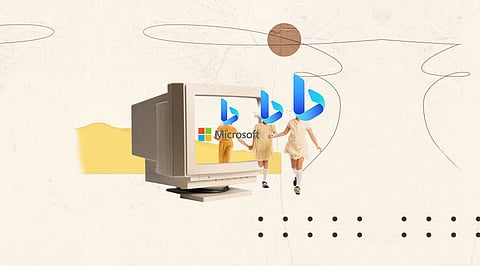

Microsoft has officially taken the lead in the race to develop a generative AI-powered search engine. On Tuesday, Microsoft unveiled rumored Open AI-infused versions of its Microsoft Bing search engine and Edge web browser, proclaiming them to be the next evolution of the internet — an evolution that appears to be crafted by Microsoft so far. Google is not one of them. And Google appears to be becoming increasingly concerned about this.
Over the last two decades, Google has spent the world's most popular search engine. Search is also Google's most profitable business, thanks to the advertisements that appear in search results. So, it's unusual to see the company scrambling when it comes to what it's always done best. Yet, it appears that Google is doing exactly that in response to Microsoft's plans to integrate AI search into Bing, its own search engine, which appears to be further along than Google's. Following Microsoft's invitation to journalists to see its new AI products last week, Google scrambled to make announcements and demonstrate its demos. To put it another way, Google, which has long outperformed Microsoft's search and web browsing tools, is now catching up.
Microsoft refers to the new AI-powered Bing and Edge as "copilots" for your internet. People can use AI Bing to ask their search engine questions and receive AI-generated answers pulled from sources all over the internet. AI Bing will also allow you to communicate with your search engine to refine or expand your search. According to Microsoft, you can even plan a trip to Hawaii or prepare for a job interview using your search engine. Even those dusty old traditional search results should be improved, thanks to an AI boost to the search algorithm, which should return more accurate and relevant results.
Meanwhile, the new Edge browser will include AI, such as a sidebar that can provide a summary of what you're looking at or assist you in writing a message to post on it. A post on Microsoft-owned LinkedIn was used as an example. Seamless!
"AI will fundamentally change every software category, beginning with the largest of all — search," said Microsoft chair and CEO Satya Nadella in a statement.
Google had attempted to outdo Microsoft with its announcement the day before. Sundar Pichai, CEO of Google, revealed in a blog post that the company's ChatGPT competitor was called "Bard," and that it would be available to the public in the coming weeks.
Google also stated that its AI tools would be integrated into its search results "soon." It appears to have already made one error here, with Bard inserting a factual error with a demo response to a question regarding the James Webb Space Telescope.
The day after Microsoft unveiled its AI offerings, Google did the same in Paris in the early morning hours on the West Coast. The majority of it was devoted to highlighting advancements in Google's visual search features, but Bard got a quick demo with a search about the benefits and drawbacks of purchasing an EV. The company also demonstrated what appears to be a work in progress of "new generative AI features" that can summarise information from multiple internet sources and recognise and present different points of view if a question does not appear to have a single correct answer.
Google stated that this feature will be available at some point. However, there does not appear to be a single correct answer as to when, as the company did not provide it.
That's all there is to it. When compared to Microsoft's event, it was somewhat underwhelming, and it appeared to be done only in response to it to show the world that Google is still here and that it, too, is incorporating AI chatbots into search. Google was widely expected to use its May I/O conference to officially launch its AI search efforts.
Join our WhatsApp Channel to get the latest news, exclusives and videos on WhatsApp
_____________
Disclaimer: Analytics Insight does not provide financial advice or guidance on cryptocurrencies and stocks. Also note that the cryptocurrencies mentioned/listed on the website could potentially be scams, i.e. designed to induce you to invest financial resources that may be lost forever and not be recoverable once investments are made. This article is provided for informational purposes and does not constitute investment advice. You are responsible for conducting your own research (DYOR) before making any investments. Read more here.
